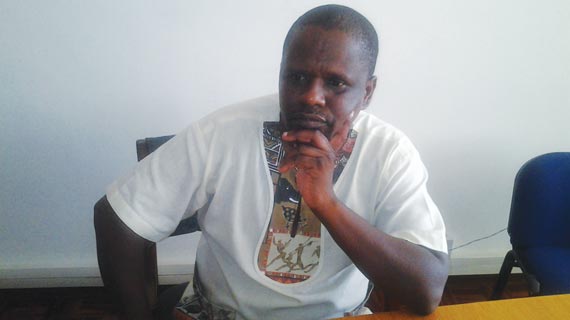
ACADEMICS are allowed to coin terms or words and I will claim this prerogative in this regard: Is Johannes Tomana still the Prosecutor-General (PG) or is he now the Protector- General?
In law, an interpretation can either be broad or narrow. In this instance, the PG chose the narrow route for reasons best known to himself. In this article I will comment specifically on the salarygate.
Comments attributed to the PG in the Zimbabwean Independent of March 7-13 2014 cannot go unchallenged for the following reasons:
In his comments, Tomana is not specific on the law he refers to as non-existent regarding corrupt tendencies by public officials.
The Prevention of Corruption Act, Chapter 9:16 is at his disposal and in case some of its provisions have been outlawed, he can call on Sections 194(1) (a-k) and 196 of the Constitution to his aid.
In summary, public administrators must be efficient and economical on the use of resources.
Services must be provided impartially, fairly, equitably and without bias.
Salary freezes are in place in most institutions.
- Chamisa under fire over US$120K donation
- Mavhunga puts DeMbare into Chibuku quarterfinals
- Pension funds bet on Cabora Bassa oilfields
- Councils defy govt fire tender directive
Keep Reading
There is the talk of productivity related salaries in the private sector and directives that local authorities salaries should not exceed 30% of the total income, while 70% is to be channelled to service delivery.
Since there is no law regulating incomes and prices in Zimbabwe, what is the PG’s take on these illegal salary freeze?
He goes on to say a moral can only be graduated into law, only when it pinches one enough.
Workers went for seven months in the case of ZBC without salaries.
Regarding PSMAS, it is not unknown how many lives were lost owing to failure to access medical care and medication.
One would expect the PG to investigate the effects of PSMAS failing to remit members deductions to relevant service providers.
Another unanswered question in Tomana’s comments is whether or not the said mega salaries were approved by relevant authorities or were self approved?
The PG would want us to believe that after the abolishment of the National Incomes and Pricing Commission, the labour market was left to the mercy of market forces.
If that is the case why is the government, as the biggest employer, reluctant to pay PDL (poverty datum line) wages and salaries?
Regulations dealing with unacceptable behaviour, including the salarygate have been alluded to earlier on, leaving the PG with no excuse for not prosecuting.
Surprisingly, Tomana only sees obscene salaries and is blind to the corrupt and life threatening or life taking conduct of the misconducts.
The social life and human dignity of the affected workers and patients was disrupted if not destroyed.
In the same article, Tomana is hazarded as having rubbed shoulders with Essien, the Ghanaian businessman implicated in the ongoing diamond fiasco.
On that score alone, whether there is something sinister or not in the said encounter, the most respectable thing to do, in as far as the salarygate and related ongoing high profile scandals are concerned was for the PG to recuse himself from commenting or dealing with cases in this realm. Tomana cannot be a policeman and judge in this regard.
He cannot bake and eat his cake. The doctrine “coming to courts with dirty hands” or suspected dirty hands (my own emphasis) can be implied in this instance.
He quips: “What wrong did I do in all this?”
Only an independent investigation can answer that question from an informed position.
For lack of information, can the PG inform the public on whether or not there is law enforcing the European Union to lift sanctions imposed on individuals?
Supposing there was no law (yet in this case there is) governing obscene salaries, there is a legal doctrine to the effect that an individual’s interest must subordinate itself to the public good/ policy.
While the PG, in terms of the quoted Section 260(1) of the Constitution is independent, not subject to the direction or counsel of anyone, and must exercise his functions impartially,
without fear or favour, prejudice or bias, he is accountable first and foremost to the great nation of Zimbabwe, as opposed to individuals.
The voice of the people is the voice of God.
Tomana must not be seen to betray the trust reposed on him by toiling Zimbabweans.
Moses Tsimukeni Mahlangu is the general secretary for Zimbabwe Urban Councils Workers’ Union. He is a labour consultant and arbitrator. Feedback: Email: [email protected] Cell: 0775 547 120 or 0712 864 275










